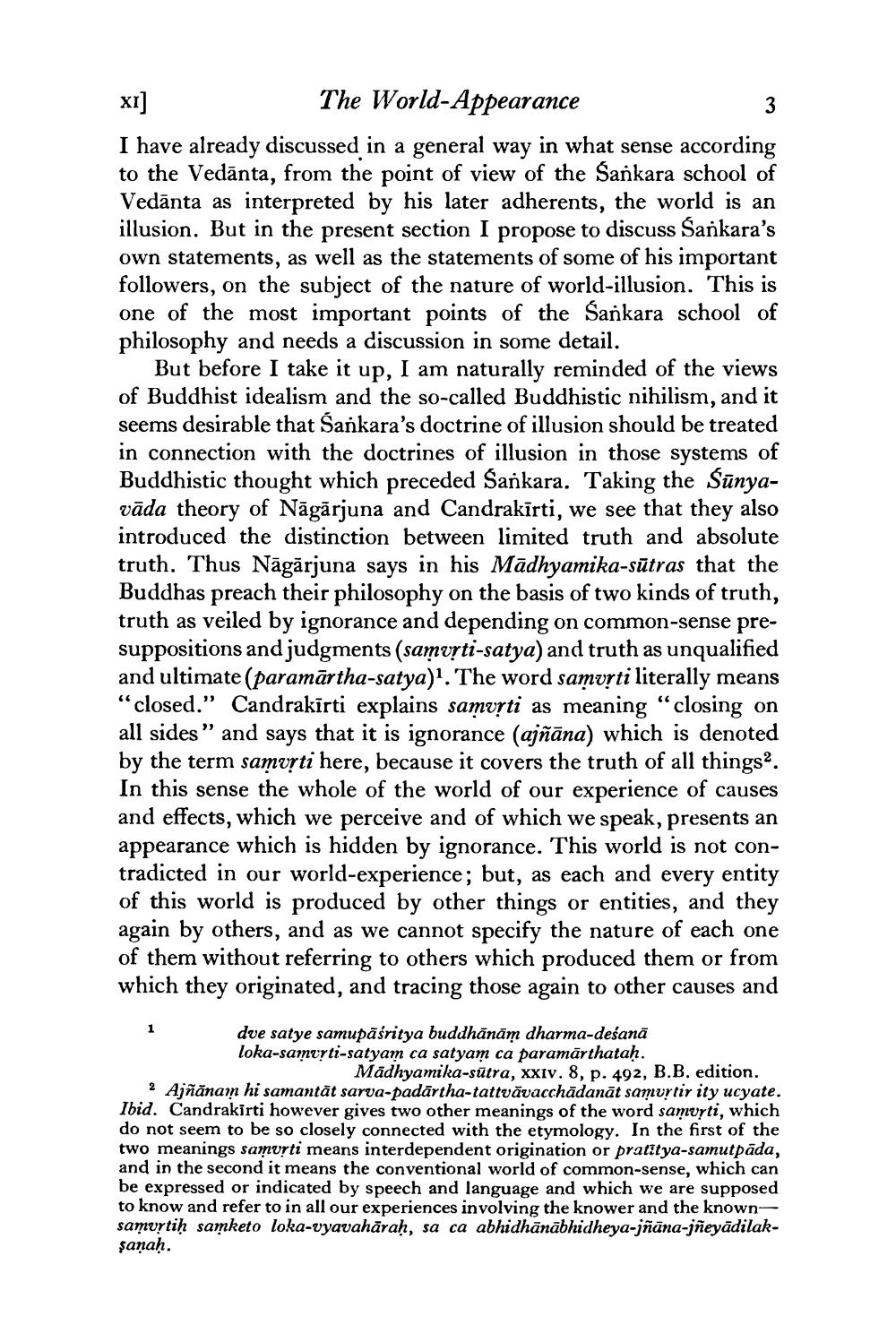________________
XI]
The World-Appearance I have already discussed in a general way in what sense according to the Vedānta, from the point of view of the Sankara school of Vedānta as interpreted by his later adherents, the world is an illusion. But in the present section I propose to discuss Sankara's own statements, as well as the statements of some of his important followers, on the subject of the nature of world-illusion. This is one of the most important points of the Sankara school of philosophy and needs a discussion in some detail.
But before I take it up, I am naturally reminded of the views of Buddhist idealism and the so-called Buddhistic nihilism, and it seems desirable that Sankara's doctrine of illusion should be treated in connection with the doctrines of illusion in those systems of Buddhistic thought which preceded Sankara. Taking the Sünyavāda theory of Nāgārjuna and Candrakīrti, we see that they also introduced the distinction between limited truth and absolute truth. Thus Nāgārjuna says in his Madhyamika-sūtras that the Buddhas preach their philosophy on the basis of two kinds of truth, truth as veiled by ignorance and depending on common-sense presuppositions and judgments (samvrti-satya) and truth as unqualified and ultimate (paramārtha-satya)". The word samvrti literally means “closed.” Candrakīrti explains samvști as meaning "closing on all sides” and says that it is ignorance (ajñāna) which is denoted by the term samvrti here, because it covers the truth of all things. In this sense the whole of the world of our experience of causes and effects, which we perceive and of which we speak, presents an appearance which is hidden by ignorance. This world is not contradicted in our world-experience; but, as each and every entity of this world is produced by other things or entities, and they again by others, and as we cannot specify the nature of each one of them without referring to others which produced them or from which they originated, and tracing those again to other causes and
dve satye samupāśritya buddhānām dharma-deśanā loka-samurti-satyam ca satyam ca paramārthataḥ.
Madhyamika-sūtra, XXIV. 8, p. 492, B.B. edition. 2 Ajñānain hi samantāt sarva-padārtha-tattvāvacchādanāt samurtir ity ucyate. Ibid. Candrakirti however gives two other meanings of the word samurti, which do not seem to be so closely connected with the etymology. In the first of the two meanings samurti means interdependent origination or pratitya-samutpada, and in the second it means the conventional world of common-sense, which can be expressed or indicated by speech and language and which we are supposed to know and refer to in all our experiences involving the knower and the knownsamurtiḥ samketo loka-vyavahāraḥ, sa ca abhidhānābhidheya-jñāna-jñeyādilaksanaḥ.




